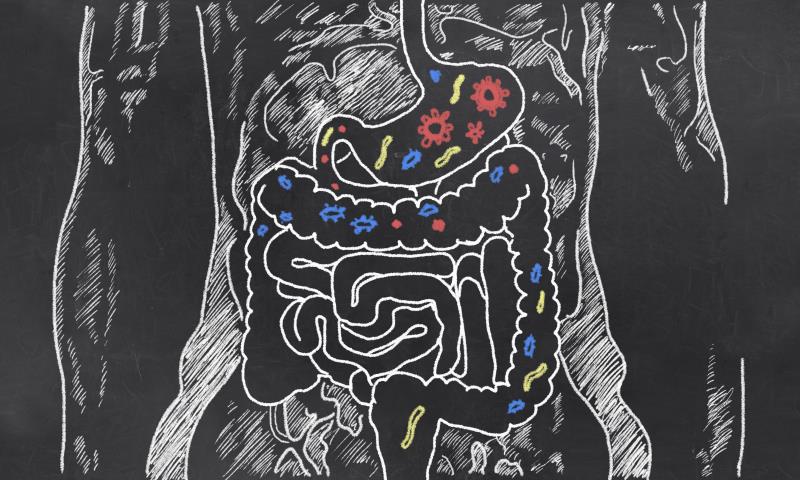
Supplementation with oral drops containing the probiotic Bifidobacterium animalis subsp. lactis BB‐12 (BB‐12) effectively reduces crying time in infants with colic, suggesting that the gut microbiota can be a target of intervention for infant colic, a study shows.
“Although infant colic is a benign and usually self‐limiting condition, it is a source of major distress for the infant, parents, family and health‐care givers,” said the researchers.
“Our study provides compelling evidences for the efficacy of BB‐12 in the treatment of infant colic,” they added.
Eighty percent of infants who received BB-12 supplementation had ≥50 percent reduction in daily crying duration compared with just 31.5 percent of those receiving placebo (p<0.0001). [Aliment Pharmacol Ther 2020;51:110-120]
Furthermore, reduction in crying time was significantly greater in infants treated with BB-12 vs the placebo group (mean reduction, 129.9 vs 84.3 minutes; p=0.0001). Infants receiving BB-12 also had fewer crying episodes than the placebo group (mean change from baseline, -4.7 vs -2.3; p=0.001).
“The clinical effect on daily average crying time was already evident on the first week of treatment in infants receiving BB‐12,” observed the researchers. “No infant relapsed when treatment was stopped.”
The double-blind trial randomized 80 exclusively breastfed infants (mean gestational age, 38.5 weeks) with colic who were otherwise healthy to receive BB-12 supplementation (1 x 109 CFU/daily dose) for 28 days or placebo in a 1:1 ratio, both in addition to parental reassurance and education.
Both the BB-12 and placebo groups had improved stool consistency by the end of the study. During the first week, most infants receiving BB-12 had mushy stool (67.5 percent), but stool consistency improved to type E — soft blobs with clearly defined edges which pass easily — in majority of them (65.0 percent) by the last week. Similarly, 85 percent of infants in the placebo group had mushy stool during the first week but 72.5 percent of them showed a type E stool by the last week.
Biochemical analysis of stool samples in a subset of infants revealed that Bifidobacterium abundance increased significantly only in the responder infants treated with BB-12 (p<0.05). Of note, the increase in Bifidobacterium significantly correlated with the reduction in crying time.
“The effect could derive from immune and non‐immune mechanisms associated with a modulation of gut microbiota structure and function,” suggested the researchers, who noted increases in the levels of butyrate, LL-37, HBD-2, and sIgA in responder infants, which are indicative of the maturation of the gut microbiome function.
“It is relevant to underline that this trial studied a specific well-characterized probiotic strain, and that these findings cannot be extrapolated for other probiotic strains,” said study principal investigator Dr Roberto Berni Canani of the University of Naples “Federico II” in Naples, Italy.
As the number of participants was relatively small and the study only included infants who were exclusively breastfed, the researchers cautioned against generalizing the findings to other infant population.